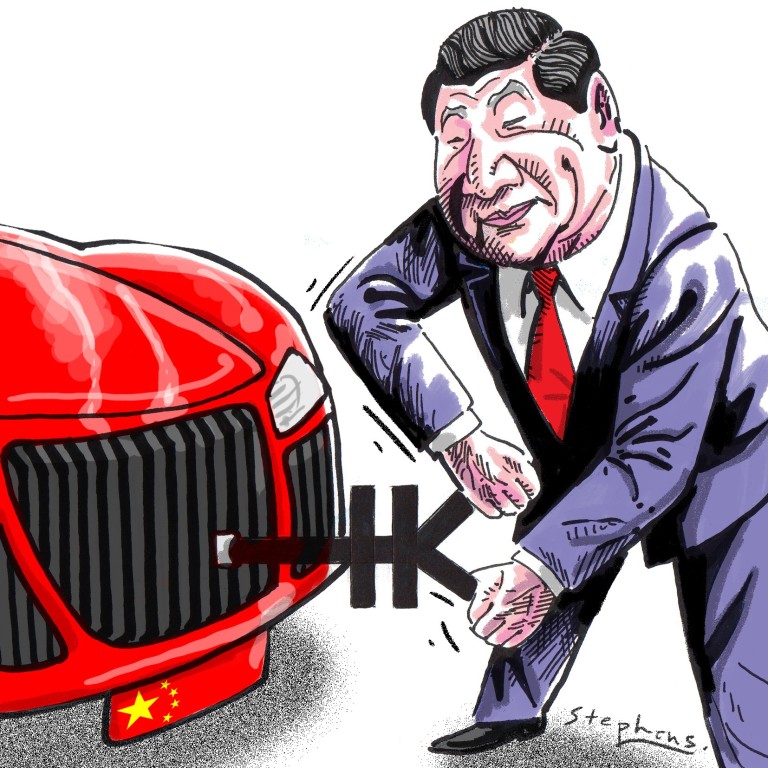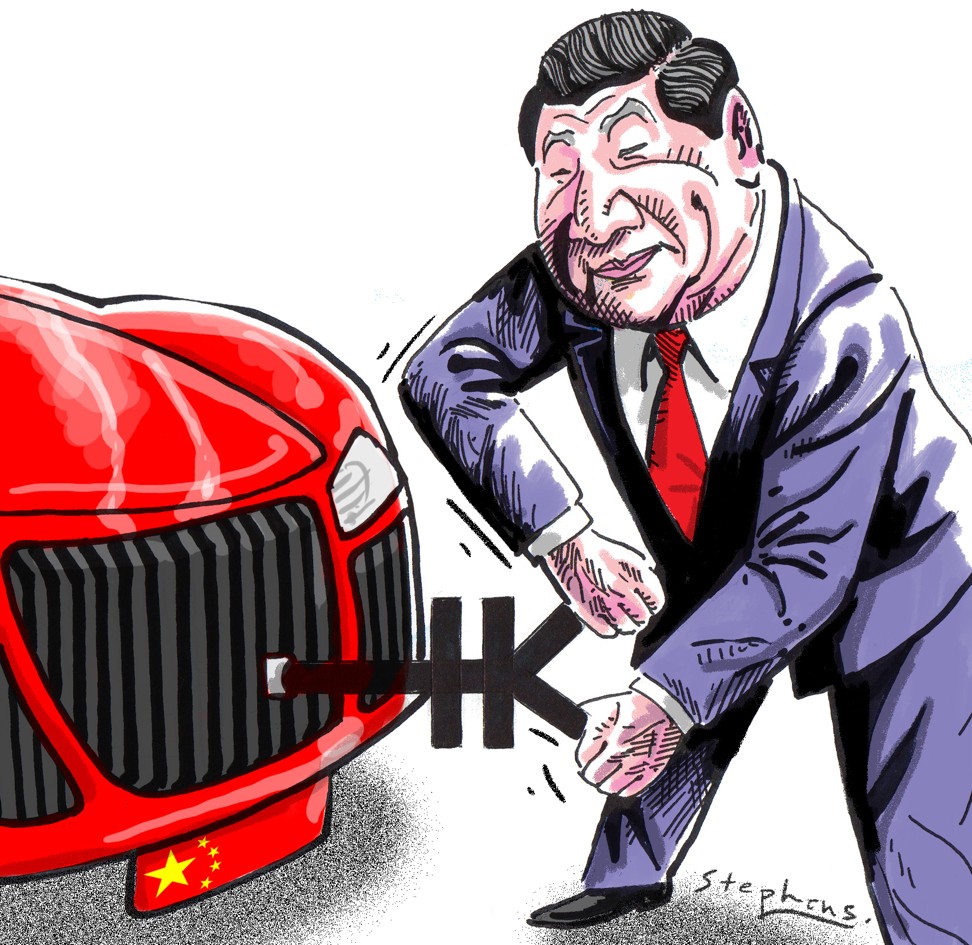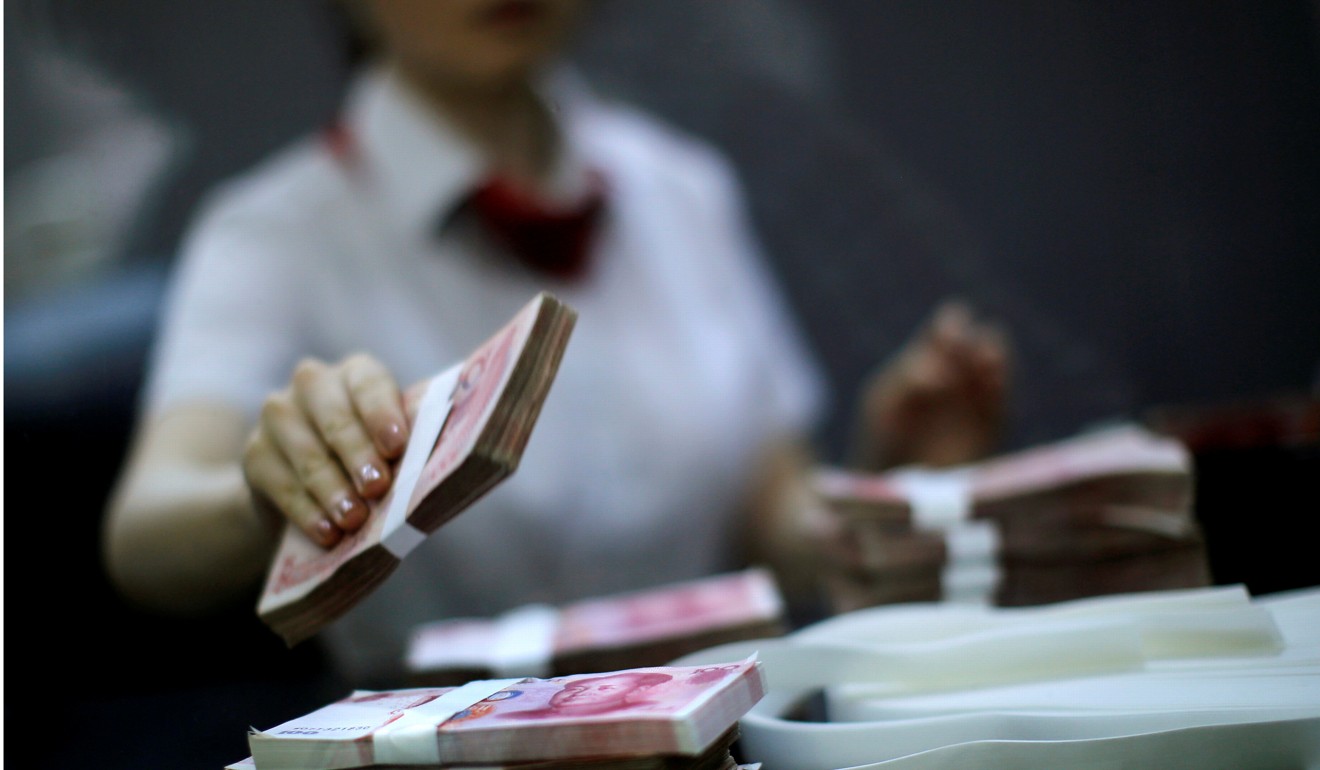
China is revving up its economic reform drive again, as Liu He pledged in Davos
Deng Yuwen says there are many reasons China must recommit itself to its reform and opening up policy, not least because further reforms would help it meet its own development goals, and avoid a trade war with the US and Europe

Liu’s speech in Davos could be seen as an effort to reassure the international community.
What Liu said was nothing new; he merely elaborated on the Chinese economic blueprint that was unveiled at the 19th party congress. But given Liu’s position, global investors and analysts were right to pay attention.
On economic reform, Liu said it would be deepened to allow the market to play a decisive role in allocating resources, protect private property, especially intellectual property, and give full play to the role of entrepreneurs. This would encourage competition, curb monopolies and improve the macroeconomic regulatory regime.
Chinese President Xi Jinping’s top economic aide fails to inspire at World Economic Forum in Davos
Why is China stepping up its reform and opening up on the 40th anniversary of this policy’s introduction? One reason is China must do so to meet the first of Xi’s two “centenary goals” – to build a moderately prosperous society by 2021 to mark the 100th anniversary of the founding of the Communist Party. The goal cannot be reached without reducing poverty. This is why poverty reduction is one of the three major tasks for the coming years.
Furthermore, with China today facing an L-shaped growth trajectory, reforms are vital to keep the economy going forward.
China should ‘be ready for a trade war’ after Donald Trump’s Davos speech
Meanwhile, the White House is reportedly considering a “reciprocal investment regime” that would restrict Chinese investment in the US to the extent that China is restricting American investments in its market. If such a regime does materialise, the EU and Japan might follow suit, which would make it difficult for Chinese companies to enter European and US markets.
China became a capital-exporting country a few years ago, and mainland companies expanding overseas benefit from the mature markets and well-established legal systems in the US and Europe. That is why a move to enforce reciprocity would be a barrier for Chinese firms seeking access to foreign markets.
US tech firms lead protests over unfair treatment in China: AmCham survey
In addition, Trump’s tax overhaul, which could set off a round of tax cuts in other major economies, also poses a challenge for China.
Under these circumstances, China has no choice but to deepen its reform and opening up. Unless it is prepared to fight a trade war or see Chinese businesses barred from other markets, China has to open up its less competitive sectors that it has been protecting under the pretext of “national security” and other concerns.
We can assume Liu’s speech reflects Xi’s thinking. In his New Year address, Xi said reform and opening up should be advanced at a faster pace this year.
Watch: Xi Jinping vows to carry out reform in 2018
There are other reasons why Xi wants to speed up reform and opening up in the next few years. Five years of a vigorous anti-corruption drive and a campaign to clean up the Communist Party have nevertheless created new hurdles for China’s reform agenda. Objectively, the crackdown has succeeded in building a cleaner government, but it has also encouraged a “wait and see” attitude among government officials. Many have little incentive to push forward bold reforms for fear of inadvertently violating a rule. This is why the push to reform and open up has reached a stalemate.
There are signs that the reform drive has already been rebooted
The intensity and approach of the anti-corruption drive must be adjusted; the fight against graft must be normalised, so that it does not undermine officials’ initiatives to introduce change.
Besides, after such an extensive anti-graft campaign, Xi has basically eliminated his opposition in the party. So he should have more time and space now to contemplate how to tackle the deep-rooted problems in the reform drive.
There are signs that the reform drive has already been rebooted.
For example, late last year, Chinese courts announced the retrials of three criminal cases relating to property rights, putting in action the government’s intention to better protect private property and restore business confidence.

Recently, the State Council’s State-owned Assets Supervision and Administration Commission confirmed that its power to appoint and dismiss the heads of state-owned companies would be delegated to the companies’ boards.
Beijing is also likely to unveil more reform measures after the “two sessions” legislative meetings in March.
The international community should cheer the market-opening measures that may come. However, they should know that such measures would be restricted to the economic sphere, touching on the social sphere at most.
Xi Jinping isn’t just reforming China, he’s creating an alternative to the West
Expect little easing to happen in politics. Perhaps there may be some small improvements in certain areas, but on matters concerning major principles and sensitive issues, the government’s grip may even tighten.
Deng Yuwen is a researcher at the Charhar Institute think tank. This is translated from Chinese

